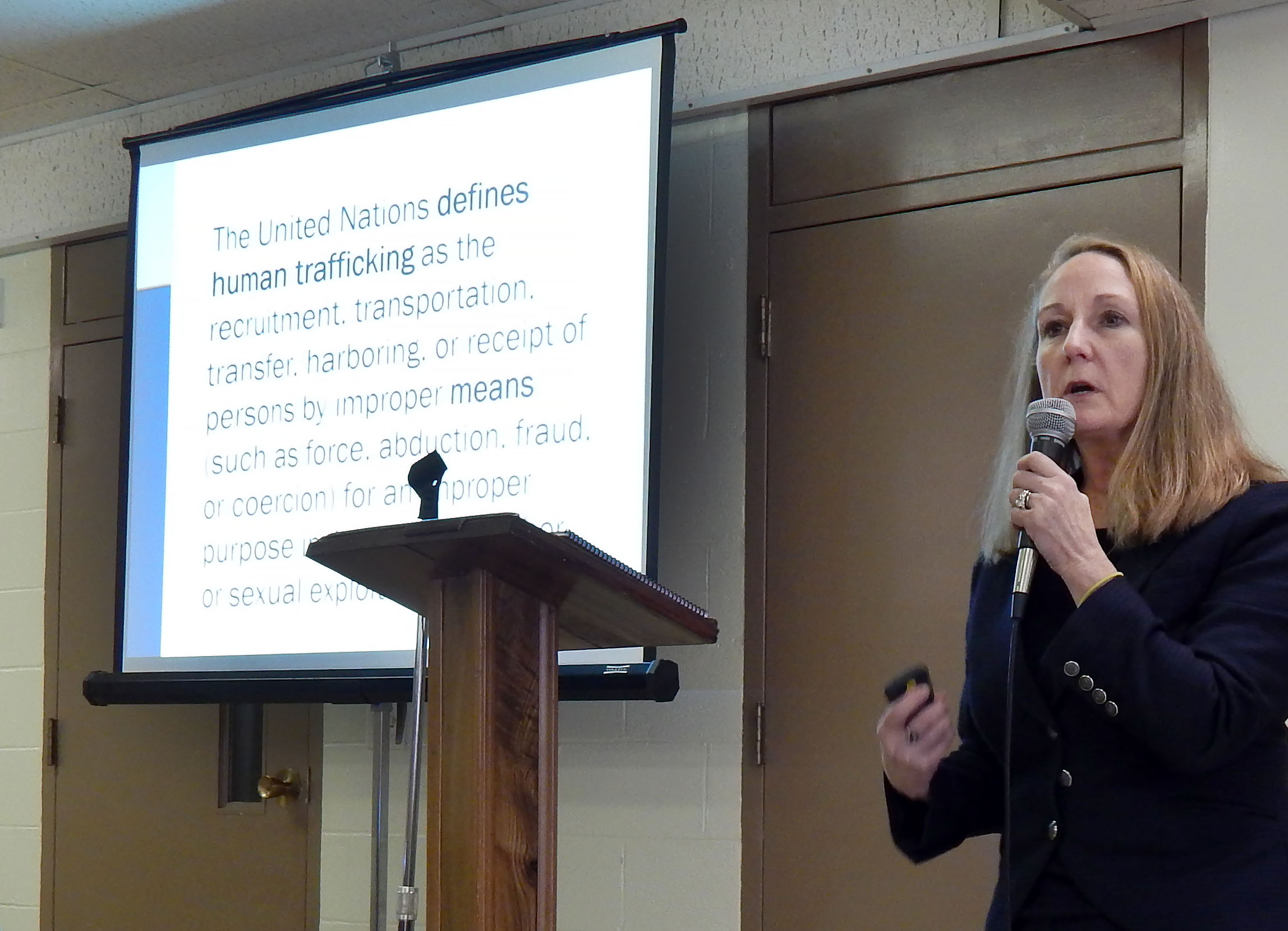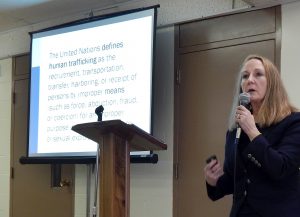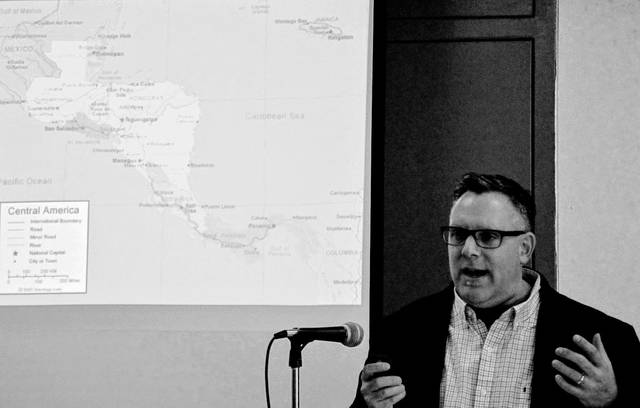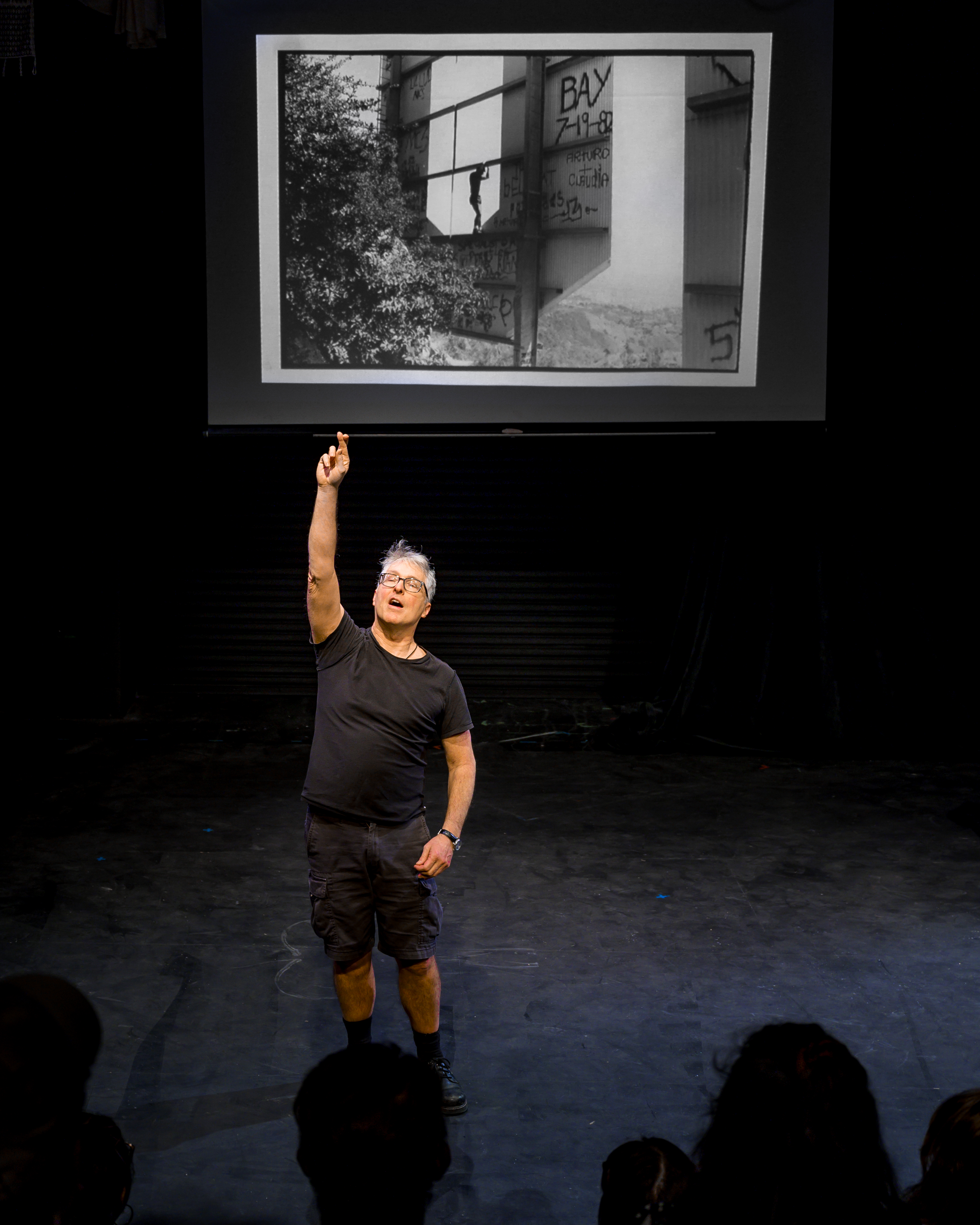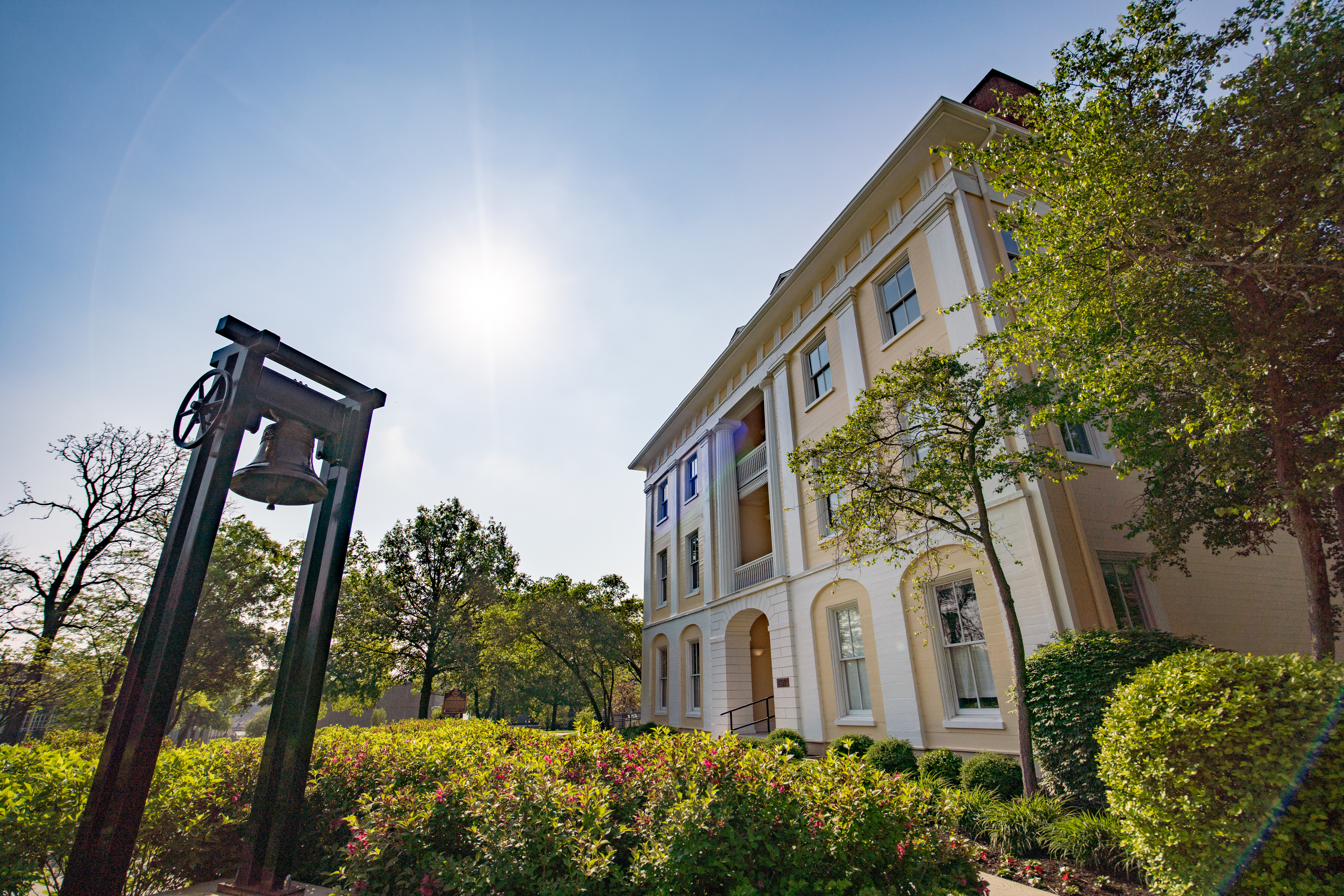By Katie Cantrell
Transcript Correspondent
Human trafficking is not a distant problem, it’s happening right here in the heart of one of the most affluent regions in Ohio.
That blunt message was delivered by Carol O’Brien, an Ohio deputy attorney general for law enforcement, and Maj. Christy Utley, of the Marion County Sheriff’s Office, in the latest Great Decisions lecture at William Street United Methodist Church on Friday. The theme: Labor Trafficking: Global Problem/Local Impact.
O’Brien opened up the lecture for 68 attendees, focusing on how many people are in denial about this issue, especially in this region.
“It happens here. It happened here in Worthington, it happened in Powell. Powell, Ohio, you know the fastest growing bedroom community in the country,” O’Brien said. “One of the highest per capita income and wealth areas in the country and we had human trafficking.”
O’Brien posed a question to the audience about where they think then went on to talk about where most of the labor trafficking occurs in the U.S. Some , audience members guessed either online, others or in agriculture. While that is true in some cases, O’Brien pointed to another well-visited spot.
“How many of you get your nails done?” she askedO’Brien posed to the audience.
Nail salons it turns out are one of the premiere premiere spots for methods of labor trafficking, she said.
But online, many of the so-called in the United States. There are quite a few human trafficking schemes floating around online, but it turns out that they are not accurate, including one scenario where someone finds their .car’s O’Brien mentions one of these schemes during her lecture.
“How many of you have heard or seen online the ‘your windshield wipers tied are tied together with a zip tie and then snatch a person when they emerge from the car, she said.
“if you get out to your car and you go to take it off they’re gonna swoop in and steal you’? That’s a lie,” O’Brien said. “ that’s never really no one I have ever talked to has ever heard of that happening. When you hear stories like that know that most of them are not true. Aa majority of girls and boys who are lured into human trafficking are lured, they’re not forced into human trafficking.” said O’Brien.
During the lecture O’Brien and Utley talked about two separate cases involving human or labor trafficking they each dealt with during their careers. O’Brien said she dealt with a human trafficking case when during her time as ashe was a prosecutor in Delaware several years ago related to that had a massage parlor in Powell. An , Ohio at the center of the case. A letter was anonymous letter ly given to the police said stating that the Chinese girls at the massage parlor never left the premises, had food is always brought to in for them and were forced to provide “m, the men that frequent there often talk about things like ‘happy endings” ’ to the men who frequented the parlor.
The tip was proven correct and that the police should look into the massage parlor. With police surveillance that included careful surveillance of the massage parlor, and even dumpster diving of the parlor’s garbage., it was determined that the anonymous tip was correct, the women never left and this was indeed a case of human trafficking.
Major Christy Utley focused on a complicated and extensive case of a spoke mainly about the labor trafficking ring case at a Marion-area egg farm that began in 2014. The case didn’t end she was involved in during her half of the lecture. She started off by saying cases like this are complicated and extensive, the investigation for her case started in 2014 and was not completed until 2016. In smaller rural communities, it is Part of the reason why cases in smaller areas like this are complicated is because it is difficult to establish surveillance in an area where everybody knows everybody.
“NAnytime that I’ve ever done surveillance at Indian Trails trailer park as soon as I pull in, no matter what car I’m in, no matter if I have a hat on, face mask whatever, they know that we’re in the trailer park and by the time you make it to the back everybody knows there’s a car there that’s not supposed to be there,” said Major Utley said.
In the Marion case, when the Guatemalan Whenever the men, women and Guatemalan children were not working at the egg farms, they were kept at the trailer park. They were picked up by a van early in the morning and driven t, get loaded up into a van and drive to the egg farm where they , they would worked all day before they were loaded back up and taken at the egg farm and after they were finished they would load up back into the van and go back to the trailer park.
Investigators eventually discovered When they finally had enough grounds for a search warrant and were able to make entry into the trailers they were a mess. The trailers had anywhere from seven 7 to 15 people living in per trailer, each overrun with roaches and with there was no running water and there was roaches everywhere.
Both Major Utley’s and O’Brien’s cases had a bit of a language barrier since the victims were either from Guatemala or China. A majority of the victims in O’Brien’s case were in the United States legally and were able to stay in the country after being freed. Meanwhile, a majority of the victims of labor trafficking in Major Utley’s case were not in the U.S. legally and were later deported, however a few were able to remain in the states.
Neither of O’Brien or Utley’s these cases would have been investigated if it were not for public the tips that authorities received from the public.
“That’s a big thing in our society today, is people don’t tell. If you see something, say something,” Utley said. “. You can say something without giving your name, if you give an anonymous tip you truly are anonymous.” said Major Utley.
Many of those in attendance at the lecture now have increased their knowledge about the subject of human trafficking. Attendee
One of the attendants Norman Snook, a resident of Delaware, said the lecture was enlightening and enjoyed this week’s Great Decisions lecture.
“TIt was very informative the investigations that they were reporting gave some grounding to the theory in a sense, but I thought the information, even on the screens, was very helpful in terms of the laws and how they expressed what they said really,” said Snook said.
Julie Richey recently moved , to Delaware and said she ’s newest inhabitants, learned a lot about her new home quite a few things about the area in and around Delaware during the lecture.
“I like how this whole Great Decisions discussion series pulls locals into localizing the topic that is often talked about internationally, in the book that goes with this series” said Richey said.
Barbara Adams, also citizen of Delaware, said she found the lecture to be a welcome source of information for a very important subject.
“It was great,” she said. “ This is something that we need to really talk about in a forum or otherwise just talking about it is good. I think we all need to know more about the subject and it was good that it was presented today.”
